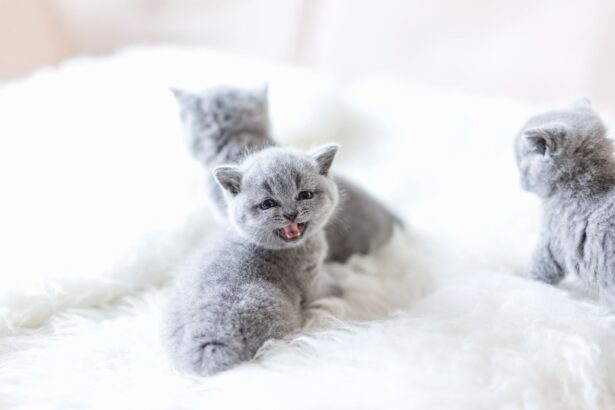Why cats meow: the loving code behind every sound
Your cat doesn’t just “make noise” — she’s talking to you. From tiny trills to opera-level yowls, each sound carries a message. Ready to decode it and build an even sweeter bond?
Fun fact to start: adult cats rarely meow to other cats. They mostly save that voice for humans. Manipulative? Maybe a little. Adorable? Absolutely.
Your cat’s secret language, in plain English
Cats chat with their whole body — tail, eyes, whiskers — and yes, their voice. A meow is a smart, flexible signal for greetings, requests, or complaints. Listen for pitch, length, and urgency: short and bright often means “hi!”, long and low can mean frustration.
If you’d like a deeper walkthrough of sound types and body cues, explore how to interpret your cat’s meows in everyday life.
What your cat might be saying
- “I need something.” Food, fresh water, a cleaner litter box, or help with a closed door. Basic needs first.
- “Notice me.” Many cats meow to start play, ask for cuddles, or just keep you close. Attention-seeking meows are often rhythmic and persistent.
- “Hello, you.” Short, bright meows at the door? That’s a greeting — think “hey, you’re back!”
- “I’m uneasy.” Stress, pain, or illness can change the voice: louder, hoarser, or more frequent. New environments or guests may also trigger vocalizing.
- “It’s a mood thing.” Some breeds (hello, Siamese) and some personalities are simply chattier.
Common mistake to avoid: feeding after every meow. Your cat will learn that meowing equals snacks — and you’ll train her to ask louder and longer. Instead, feed on a schedule and reward calm moments.
If the meows feel anxious or sudden, start here: the signs of stress in cats and how to soothe them.
Responding the smart way
- Check the basics first. Clean litter, fresh water, timely meals, and a quick health scan (gums, gait, energy).
- Stick to a routine. Predictable feeding and play windows reduce “random” meowing and build security.
- Reward the calm, not the noise. Wait for a quiet beat, then offer attention or treats. You’re teaching that silence works better.
- Burn energy daily. Two short play sessions (wand toy, chase, pounce) plus a small meal after mimic the hunt-eat-sleep cycle.
- Use enrichment. Food puzzles and window perches keep brains busy — less boredom, fewer “I’m bored” meows.
Pro tip: make a “meow journal” for one week. Note the time, sound, and what just happened (opened fridge, sat at laptop, grabbed keys). You’ll spot patterns fast — and fix the cause, not just the sound.
Want to teach cues like “quiet” or a hand target? You can absolutely train a cat gently with rewards and timing.
Night owls and dawn choruses
Lots of cats meow at night because twilight is go-time in cat world. Try a vigorous play session before bed, then a small meal so sleep feels natural. A timed feeder at dawn can stop the 5 a.m. “wake the human” mission.
Curious about nocturnal chatter? Here’s why some cats meow at night and how to restore your beauty sleep.
When meowing signals a vet visit
- Sudden change in voice or frequency. Especially if paired with hiding, limping, or a change in appetite or litter habits.
- Senior cats vocalizing at night. May indicate pain, hypertension, or age-related confusion — gentle checkups help.
- Hoarse, strained, or open-mouth meows. Could signal throat irritation or breathing issues.
- Post-surgery or after a fall. Persistent meowing can be a pain flag — call your vet.
A surprising truth about meows
Many experts think cats refined their meows to be extra persuasive for humans — pitches and patterns close to a baby’s cry get our attention fast. Coincidence? Your cat would prefer we say “talent.”
Quick sound cheat sheet
- Trill/chirp: friendly greeting, often when they trot toward you.
- Short bright meow: “Hello!” or “Follow me.”
- Drawn-out meow: a request — door, dinner, lap, now please.
- Yowl/caterwaul: stress, territorial feelings, mating calls, or discomfort. If new, check health.
Never do this: scold, spray water, or shut your cat away for meowing. It raises stress, often makes the behavior worse, and can harm your bond. Calm, consistent responses work best.
FAQ
How do I tell hunger meows from attention meows?
Hunger meows often ramp up around routine meal times and stop once fed. Attention meows come anytime you sit, type, or ignore — and they continue after food unless you engage.
How can I stop my cat meowing at night?
Play hard 1–2 hours before bed, feed a small post-play meal, and consider a timed feeder near dawn. Keep nights boring: dim lights, no middle-of-the-night play sessions.
Do cats meow to each other?
Kittens meow to their moms, but adult cats rarely meow to other cats. Meows are mostly for humans; cats use body language, scent, and other sounds with feline friends.
Should I ignore my cat when she meows?
Ignore attention-seeking meows after you’ve met basic needs, then reward a moment of quiet with affection or play. For new, intense, or distressed meows, investigate health first.








